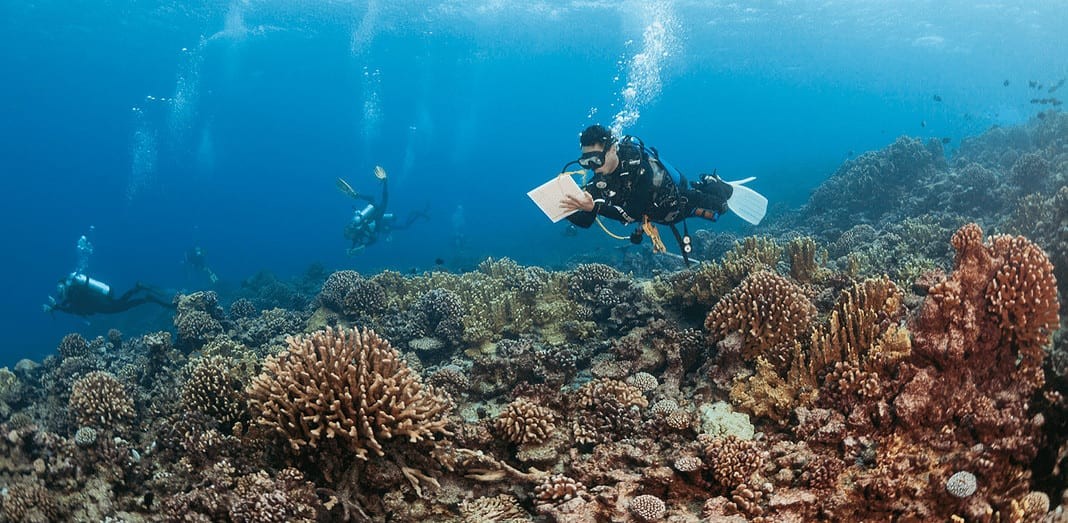A large group of scientists recently released a report on their decade-long effort to study the state of the world’s coral reefs.
Those scientists — sponsored by the Khaled Bin Sultan Living Oceans Foundation — took a ship and sailed around the world over 10 years collecting data in the field. The effort involved hundreds of scientists, conservationists, and marine managers in 16 countries, who spent more than a year underwater collecting detailed information on the diversity and abundance of corals and reef fish.
They then shared their findings with government officials, local leaders and conservation organizations to provide them with science-based maps and surveys of their coastal marine habitats so they can use them for conservation. Many of these same individuals were involved in the planning and collection of data so the information we provided to each country would be useful for their conservation and marine spatial planning efforts.
According to Sam Purkis, KSLOF’s Chief Scientist as well as Professor and Chair of the Department of Marine Geosciences at the University of Miami’s Rosenstiel School of Marine and Atmospheric Science:
“The Global Reef Expedition was a monumental achievement. It owes its success to nimble planning and a common vision shared by a broad group of forward-thinking scientists, managers, and educators. I have no doubt that the baseline determined by the Global Reef Expedition for the world’s reefs will remain a reference for centuries to come.”
What they found clearly illustrates the global nature of the coral reef crisis.
Renée Carlton, a Marine Ecologist at KSLOF and the lead author of the report, said:
“One of our most significant findings from the Global Reef Expedition was that nearly every country we studied showed signs of overfishing. Even on some of the most remote and well-protected reefs.”
She noted that finding fewer and smaller fish on the reef poses problems for the health of the reef itself as well as the people who depend upon them for protein and income.
Carlton hasn’t lost hope though, as the best reefs tended to be the ones that were remote and well-managed, but not exclusively so.
“We know marine protected areas work, in most instances these reefs had some of the best coral cover and reef fish communities, but climate change, storms, and outbreaks of crown-of-thorns starfish can still have deadly consequences to a reef, no matter how remote or well-protected it is.”
Check out the full report here.

